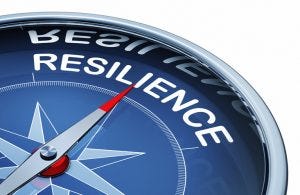November 26, 2020

Though details are scarce, Resilience claims it will provide ‘new, better, faster ways’ to manufacture cell and gene therapies. The new entity begins with bases in Boston and San Diego, as well as over 750,000-square-feet of operating space.
Officially known as ‘National Resilience’, the company announced its entrance on the market by suggesting that it would be a ‘first-in-kind’ biomanufacturing and technology operation that has been set up specifically to address capacity issues in the advanced therapeutics area.
Resilience plans to invest in developing new manufacturing technologies and thereby ‘dramatically’ increasing overall production capacity for cell and gene therapies, viral vectors, vaccines, and proteins.

Image: iStock/frankpeters
The newly-launched company will begin with a considerable amount of financial backing, after raising over $800 million (€671 million) in capital.
A Series B financing round, which raised $750 million of this, was led by Arch Venture Partners and 8VC, with the former being partnered with companies developing such therapies, as Alnylam, bluebird bio, and Vir Biotechnology are part of its portfolio.
When asked how this capital will be utilized, a spokesperson told Bioprocess Insider that the short-term plan is for it to be invested in ‘new, better, faster ways’ to manufacture medicine.
In terms of how Resilience will operate within the biomanufacturing space, the spokesperson stated that the company aims to do more than provide contract manufacturing services, though this would also be part of the offering.
“For medicines like gene and cell therapies, the manufacturing process is part of the product. We will endeavor to partner closely with companies developing these next generation medicines as their manufacturing and process development innovation partner,” they said.
How their approach will differ from existing contract development and manufacturing organizations (CDMOs) on the market is not clear, and the spokesperson declined to discuss ‘specific technological approaches just yet’.
However, Resilience’s launch featured a comparison between Amazon Web Services (AWS) and itself. When asked to expand upon this, the spokesperson outlined, “AWS offers always-available infrastructure to its customers with the ability to add server capacity and tools as needed, while also investing in the capabilities its customers will need tomorrow. We’re doing that same thing, only for biopharma manufacturing.”
Resilience is not the only newly-founded manufacturer looking to scoop up work in the cell and gene space, with the $1.2 billion Center for Breakthrough Medicines founded under a similar premise at the beginning of the year.
Regarding why there is such a focus on providing manufacturing services in the space, which is also seeing the major CDMOs investing in improving capabilities, the spokesperson concluded, “Life science innovation has evolved far more rapidly than manufacturing innovation…The bottlenecks are slowing down clinical development and commercialization. Breaking this bottleneck requires innovating manufacturing itself.”
One factor that Resilience does have to stand it apart, despite being newly-launched, is an experienced leadership team, which includes former COO of Takeda Vaccines and CEO of Novavax, Rahul Singhvi, as CEO, as well as Susan Desmond-Hellmann, former CEO of the Bill & Melinda Gates Foundation, and Scott Gottlieb, former US Food and Drug Administration commissioner, as board members, among others.
According to the company, it has already secured capacity at multiple facilities and will have 750,000-square-feet of operating space to come online over the next year. The geographic focus of Resilience will be in US and Canada, as well as ‘partner nations’.
About the Author
You May Also Like




